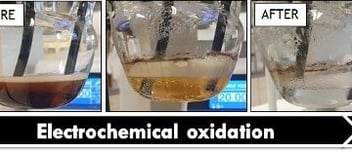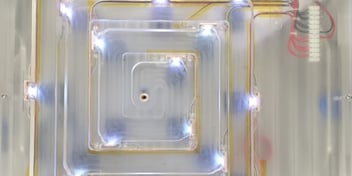Researchers use electricity to clean contaminated water
Electricity may be the key to cleaning up non-biodegradable chemical pollutants from industrial wastewater streams, with recent research from the University of Sydney employing specialised electrodes that transform harmful pollutants without chemical dosing.
Researchers from the School of Chemical and Biomolecular Engineering developed an electrochemical oxidation process that cleans chemical pollutants from wastewater.
University of Sydney PhD candidate Julia Ciarlini Junger Soares said the specialised electrodes discharge electricity to create an oxidation reaction, transforming contaminants into harmless gasses, ions or minerals.
“[Our study] involved industrial wastewater that had been heavily contaminated with a cocktail of organic and inorganic species during a biofuel production process,” she said.
“We have employed an incredibly powerful process that eliminates even the most persistent non-biodegradable pollutants, such as pharmaceuticals and pesticides, as well as various classes of organic compounds that can be found in many industrial effluents.”
The wastewater used in the pilot contained carbon, nitrogen and phosphorus, designed by the team for the production of biofuels using naturally abundant microalgae.
Soares said the process is simple, does not require additional chemicals, and is hoped to help clean wastewater streams from wineries and pharmaceutical manufacturers, among others. It also does not produce any additional waste streams.
“The electrochemical method that we used can be readily applied to industries that must comply with strict regulations for wastewater disposal, such as pulp and paper processing, wineries, as well as pharmaceutical production facilities,” she said.
Soares said it’s hoped the novel approach to wastewater treatment will help to lower the cost of removing chemical pollutants, as well as reduce the amount of water required to facilitate the process.
“Wastewater is a significant issue for our environment, as well as for many industries [which] use substantial volumes of water in their processes, such as in reactions, transport, and washing and cooling,” she said.
“Finding suitable solutions for reuse or disposal is often very challenging and costly.
“Developing alternatives for the treatment and reuse of this industrial effluent is a hot research topic and can bring opportunities for energy and resource recovery within a circular bio-economy framework.”
The team of researchers will continue the study, focusing next on specific contaminants to better understand the chemical transformations that take place during electrochemical oxidation.


